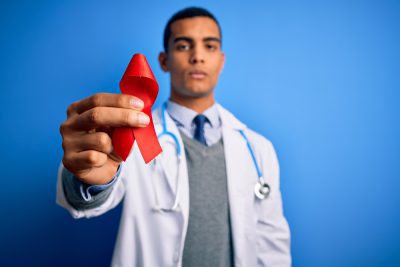
As a research coordinator and community health educator at Emory Ponce Clinical Research Site in Atlanta, Edwin Blount-Worthington always makes it his priority to bring awareness to HIV prevention and sexual health.
He recently sat down with rolling out to have a candid conversation about HIV and its impact on the Black community.
How often should people who are sexually active be tested? Also, where can those without medical coverage be tested?
There are some amazing places around Atlanta to be tested: Empowerment Resource Center, AID Atlanta, Positive Impact [Health Centers]. There [are] lots of places to go for routine testing. All of this information is available by dialing 211.
Though it is no longer considered a death sentence, is there still a stigma surrounding HIV particularly in the gay community?
One of the biggest stigmas, in my opinion, that I hate the most is that being HIV positive comes along with the spirit of promiscuity, where you became positive because you participated in mischievous behavior. It’s really one of the myths I like to dispel the quickest. HIV can impact anyone who is participating in risky behavior. It does not go hand in hand with promiscuity.
How can someone who has a partner with HIV keep from contracting the illness?
The first thing is to have [an] open and honest dialogue about what the sexual proclivities look like and what the risk factors will actually be. Secondly, engaging in each other’s health care, understanding what it means for your partner to be positive, and having a conversation with their doctor. The last thing would be PrEP [Pre-exposure prophylaxis]. PrEP is a medication that helps with the prevention of the acquisition of HIV.
What would you say to someone who has recently been diagnosed?
It depends on the person. I’ve been doing this for a while so everyone doesn’t take it the same way. The one thing that holds true is that nothing in your life has to stop. Any goals or dreams you have won’t be affected by HIV. You’re still able to be anything and everything you want to be.
According to the Centers for Disease Control and Prevention, African Americans make up only 12 percent of the population but 44 percent of HIV diagnoses. Why is that?
There are a variety of reasons, historically, men of color, Latino men, and trans women are among the most highly impacted by HIV. There is an air of suspicion when it comes to routine health care, research and things like that because of [the] Tuskegee [syphilis experiment] and a variety of things that have happened to individuals. Also, you have to think about the transient lifestyle of a lot of the younger individuals that are a part of that population as well.
What challenges do people with HIV face, and how can they cope?
Access to care. Access to care is one of the biggest things that we deal with here in Georgia. It’s gotten better over the years, but it still does present its challenges. In order to access care here, you have to have a physical address, valid state-issued ID, etcetera, and some of those things seem like insurmountable challenges, especially when there are competing priorities [such as] “Where am I going to lay my head tonight” versus “Let me try to locate this information so I can get an ID.” There are lots of times where the system doesn’t allow us to approach an individual holistically, so there is a gap in the system.
How can African Americans be proactive about our sexual health?
[We can] be honest with ourselves about the sex that we are actually having. Oftentimes, the conversations that we have in the privacy of our homes do not compare to the conversations we have in front of a health-care provider. We all need to sit down and understand that these things are actually happening, and they can happen to anyone. We have to be able to talk about sex without it being looked at as being derogatory.















